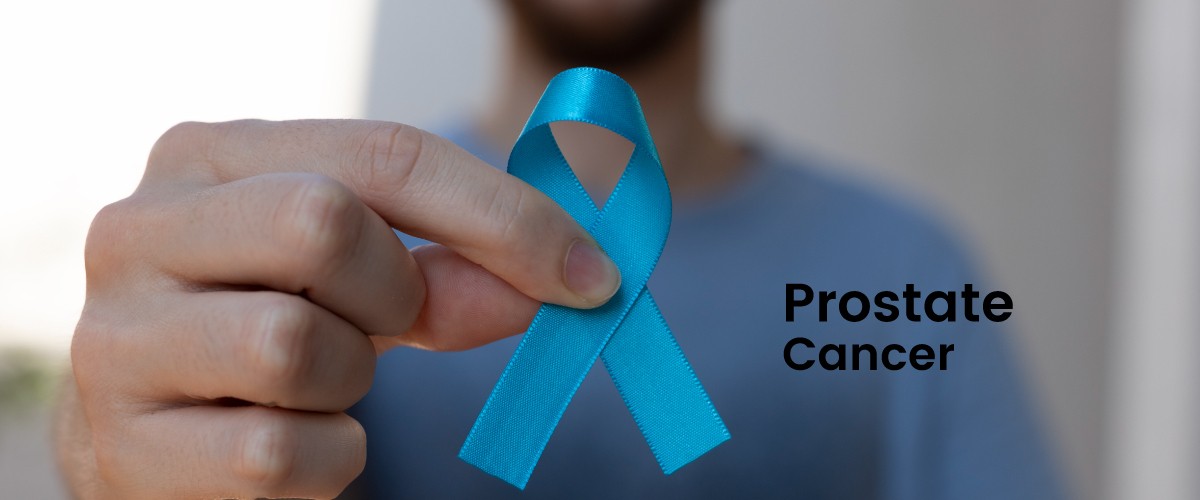
Prostate Cancer in Men: Prevention, Signs, and Treatment
Prostate Cancer in Men: What You Need to Know
Prostate cancer is one of the most common types of cancer among men. According to the American Cancer Society, about 1 in 8 men will be diagnosed with prostate cancer during their lifetime. While this statistic can be alarming, the good news is that prostate cancer is often treatable, especially when detected early.
In this blog post, we’ll cover the key information about prostate cancer prevention, signs and symptoms, and treatment options.
Prostate Cancer Prevention
The exact causes of prostate cancer are not fully understood, but there are several risk factors that have been identified:
- Age – The risk increases as men get older, with most cases occurring in men over 65.
- Family history – Men with a close relative (father or brother) who has had prostate cancer have a higher risk.
- Race – African American men have a higher risk of developing prostate cancer compared to other races.
- Diet – Diets high in red meat and high-fat dairy products may increase risk.
While you can’t control all of these risk factors, there are steps you can take to help prevent prostate cancer:
- Get regular prostate screenings – The prostate-specific antigen (PSA) test and digital rectal exam can help detect cancer early.
- Maintain a healthy diet – Eat plenty of fruits, vegetables, and whole grains, and limit red meat and high-fat foods.
- Exercise regularly – Aim for at least 30 minutes of moderate activity most days of the week.
- Maintain a healthy weight – Obesity is linked to a higher risk of aggressive prostate cancer.
Signs and Symptoms of Prostate Cancer
In the early stages, prostate cancer often has no noticeable symptoms. As the cancer progresses, some common signs and symptoms may include:
- Difficulty starting or stopping urination
- Weak or interrupted urine flow
- Frequent urination, especially at night
- Blood in the urine or semen
- Pain or discomfort when urinating or ejaculating
- Erectile dysfunction
These symptoms can also be caused by other non-cancerous conditions, so it’s important to see a doctor for proper diagnosis.
Prostate Cancer Treatment Options
The treatment approach for prostate cancer will depend on the stage and grade of the cancer, as well as the patient’s age and overall health. Common treatment options include:
- Active surveillance – For early-stage, slow-growing prostate cancers, regular monitoring with PSA tests and biopsies may be recommended.
- Surgery – Removing the prostate gland (prostatectomy) is a common treatment for localized prostate cancer.
- Radiation therapy – External beam radiation or internal radiation (brachytherapy) can be used to target and destroy cancer cells.
- Hormone therapy – Medications that block or lower testosterone levels can slow the growth of prostate cancer.
- Chemotherapy – For advanced or aggressive prostate cancers, chemotherapy may be used to kill cancer cells.
It’s important for men to discuss all of their treatment options with their urologist or oncologist to determine the best course of action.
In conclusion, prostate cancer is a serious condition, but the outlook is often quite good, especially when it’s detected and treated early. By understanding the risk factors, being proactive about screenings, and working closely with your healthcare team, you can take steps to reduce your risk and ensure the best possible outcome.
Contact Us
Visiting Hours
OPEN 24 hours 7 days a week.
OPD Timings : Monday to Saturday
( 9:00 AM to 5:30 PM )
Appointments
Emergency
Visit the hospital
MGM Cancer Institute
No 119 & 121, Nelson Manickam Road, Raajeswari Street, Rajaram Mehta Nagar,
Aminjikarai, Chennai – 600029
At MGM Cancer Institute, we believe in curing the fear of cancer first. We understand that battling cancer is not just a physical fight, but a mental and emotional one as well. Our dedicated team is committed to providing exceptional healthcare that improves your overall well-being and eases the anxiety that comes with cancer. With a 150-bed facility in the heart of your city, we are here to support you every step of the way.
© MGM Cancer Institute. All Rights Reserved. Last updated on 20-01-2025.
















